News
Michigan becomes first state to approve self-driving cars for public roads
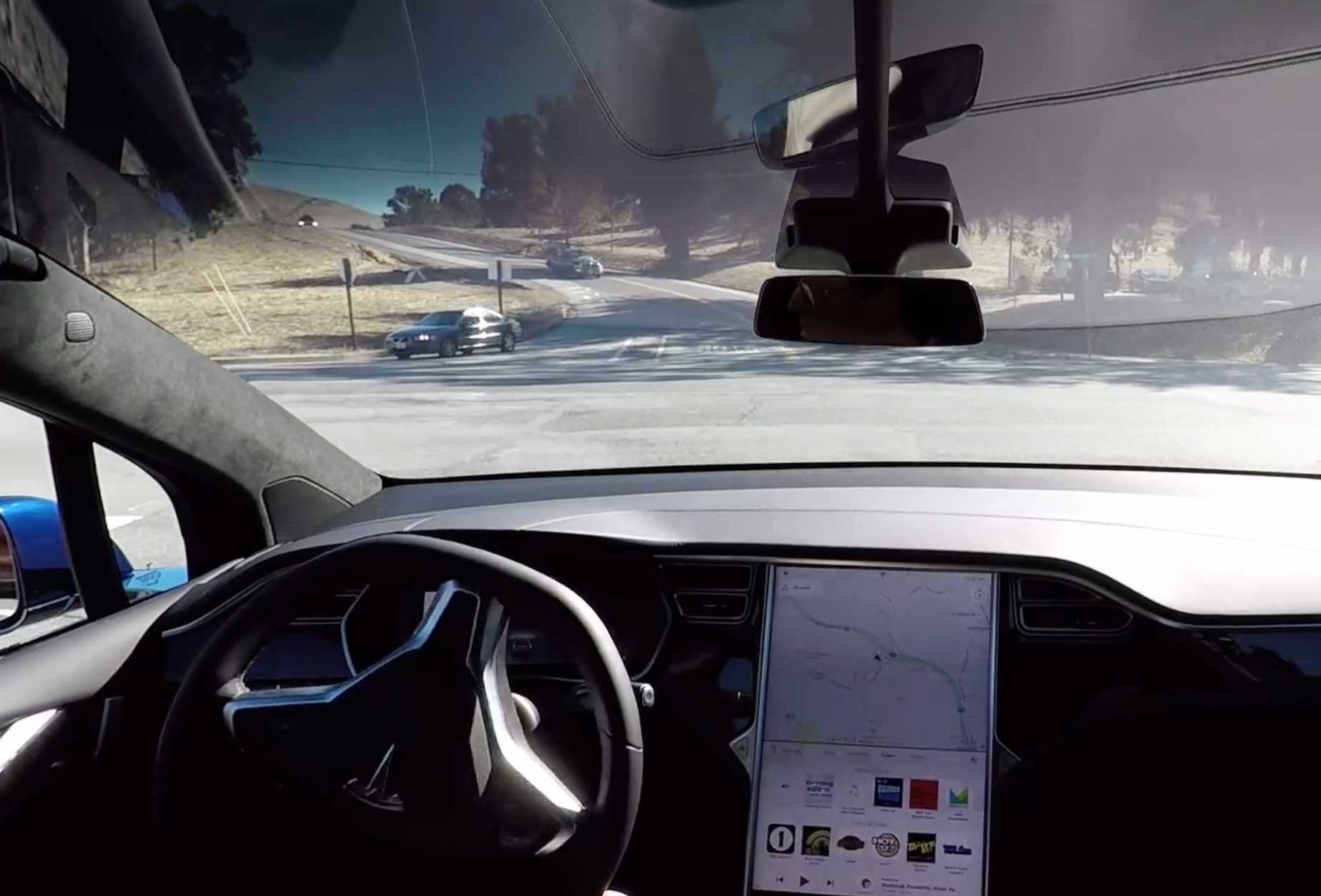
Michigan has become the first state to approve the sale of autonomous cars for use on public roads. Governor Rick Snyder signed the legislation making the sale of self-driving cars legal on December 9. The legislation is part of a package of four bills that cleared the Michigan senate last September. In addition to authorizing the sale of autonomous cars, the package includes funding for the American Center for Mobility — a research campus where autonomous driving technologies can be tested before being offered to the public.
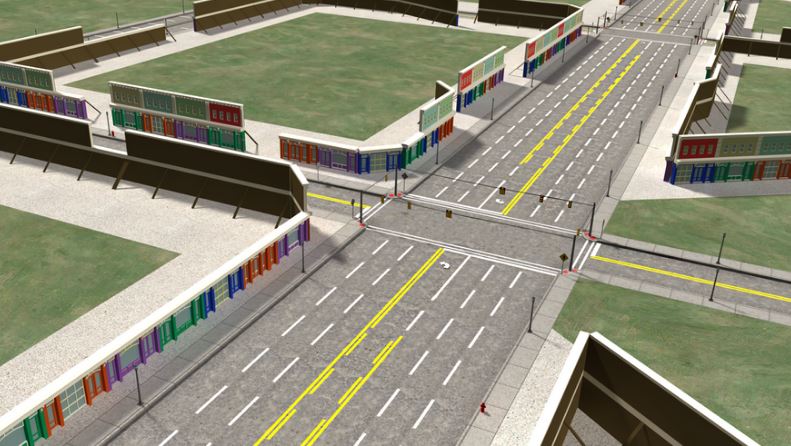
Proposed American Center for Mobility Credit: Michigan Economic Development Corp
The new law permits the sale of vehicles similar to Google’s autonomous test car that has no steering wheel, accelerator, or brake pedal. “By establishing guidelines and standards for self driving vehicles, we’re continuing that tradition of excellence in a way that protects the public’s safety while at the same time allows the mobility industry to grow without overly burdensome regulations,” Gov. Snyder said at a bill signing ceremony. “We are still the heart and soul of the auto industry, make no mistake about that,” Snyder continued.
The driving force behind the legislative package — which was vigorously supported by Ford and General Motors — is a desire to stop the brain drain of engineers from Michigan to Silicon Valley and other West Coast technology centers like Seattle. The American Center for Mobility will be constructed at the GM’s former Willow Run powertrain factory and automotive testing area. Prior to that, Willow Run manufactured B-24 bombers during World War II and was an important part of a manufacturing structure that made America the so-called “Arsenal of Democracy.”
Willow Run already has some infrastructure that will be useful for testing autonomous cars. It has long straightaways for high speed testing. It features a three level interchange, a high speed loop, and several bridges and tunnels. In addition, it already has the infrastructure needed to test connected car systems and features mock-ups of urban, suburban, and rural environments, according to AutoBlog.
This legislation will turn “the eyes of the world once again on Michigan for its engineering and its research,” says Michigan senator Ken Horn, a co-sponsor on the legislative package. “It’s a different kind of car-building,” Horn said on the Senate floor prior to voting, “but car-building nonetheless.”
It is ironic that Michigan should be so intent on being a leader in some areas while remaining doggedly opposed to innovations in others. The determining factor seems to be what Ford and General Motors want, as they are the tail that wags the dog in Michigan. The state bitterly opposes Tesla’s direct to customer sales model, for instance.
On the one hand, the state has bought shares of Tesla Motors for its retirement fund. Tesla is also a significant presence in Michigan’s manufacturing sector after purchasing the former Michigan-based Riviera Tool Company. But despite all Tesla’s lobbying efforts, the state’s franchise dealers, with substantial support from General Motors, have managed to block any changes to state law that would permit Tesla to open showrooms in the state to sell its cars directly to the public.
The new law permitting the sale of self-driving cars highlights the current struggle between traditional car companies and technology companies. Leading up to next week’s Technology In Motion conference co-hosted by Automotive News, Mike Ableson, vice president of strategy and global portfolio planning for General Motors, said automakers need to look at “the innovations coming out of Silicon Valley from Apple and Google and Samsung and put boundaries around that, not just for the OEM but also for the consumer. How far into the car do you let them come?”
Frank Weith, director of connected services at Volkswagen Group of America, said automakers need to make sure they don’t lose their identity as new technologies play a larger and larger role in the cars of the future. “We don’t want to be just a commodity, selling bulk vehicles to Google or Apple or Uber,” Weith said. “We want to be part of the consumer experience and keep our product up there.”
Both Ableson and Weith pointedly refrain from mentioning Tesla, but the shadow of Elon Musk is clearly a background factor in their remarks.

Cybertruck
Tesla confirms date when new Cybertruck trim will go up in price
Tesla has officially revealed that this price will only be available until February 28, as the company has placed a banner atop the Design Configurator on its website reflecting this.
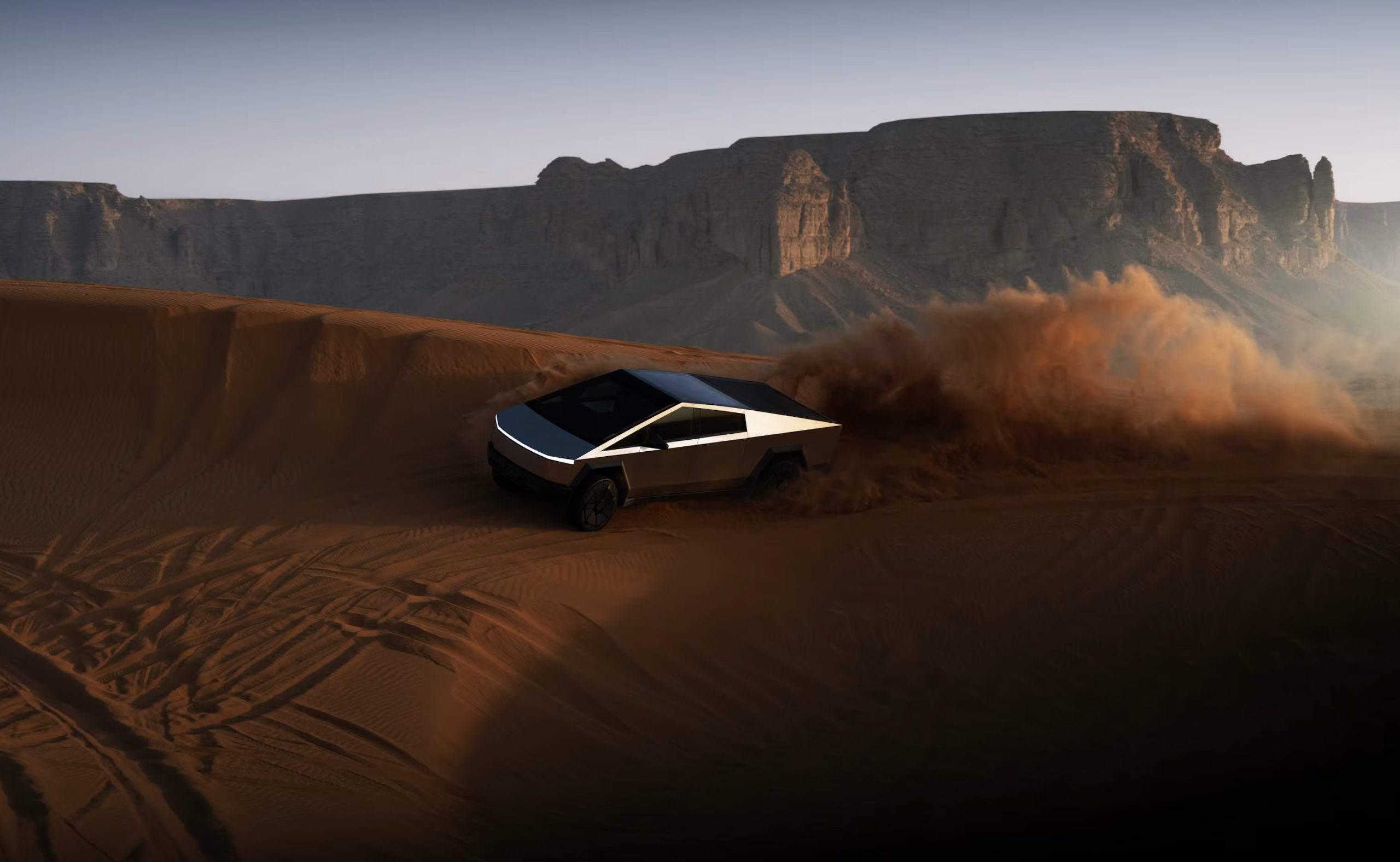
Tesla has confirmed the date when its newest Cybertruck trim level will increase in price, after CEO Elon Musk noted that the All-Wheel-Drive configuration of the all-electric pickup would only be priced at its near-bargain level for ten days.
Last week, Tesla launched the All-Wheel-Drive configuration of the Cybertruck. Priced at $59,990, the Cybertruck featured many excellent features and has seemingly brought some demand to the pickup, which has been underwhelming in terms of sales figures over the past couple of years.
Tesla launches new Cybertruck trim with more features than ever for a low price
When Tesla launched it, many fans and current owners mulled the possibility of ordering it. However, Musk came out and said just hours after launching the pickup that Tesla would only keep it at the $59,990 price level for ten days.
What it would be priced at subsequently was totally dependent on how much demand Tesla felt for the new trim level, which is labeled as a “Dual Motor All-Wheel-Drive” configuration.
Tesla has officially revealed that this price will only be available until February 28, as the company has placed a banner atop the Design Configurator on its website reflecting this:
NEWS: Tesla has officially announced that the price of the new Cybertruck Dual-Motor AWD will be increasing after February 28th. pic.twitter.com/vZpA521ZwC
— Sawyer Merritt (@SawyerMerritt) February 24, 2026
Many fans and owners have criticized Tesla’s decision to unveil a trim this way, and then price it at something, only to change that price a few days later based on how well it sells.
Awful way to treat customers – particularly when they already sent out a marketing email announcing the $59,990 truck…with zero mention of it being a limited-time offer.
— Ryan McCaffrey (@DMC_Ryan) February 24, 2026
It seems the most ideal increase in price would be somewhere between $5,000 and $10,000, but it truly depends on how many orders Tesla sees for this new trim level. The next step up in configuration is the Premium All-Wheel-Drive, which is priced at $79,990.
The difference between the Dual Motor AWD Cybertruck and the Premium AWD configuration comes down to towing, interior quality, and general features. The base package is only capable of towing up to 7,500 pounds, while the Premium can handle 11,000 pounds. Additionally, the seats in the Premium build are Vegan Leather, while the base trim gets the textile seats.
It also has only 7 speakers compared to the 15 that the Premium trim has. Additionally, the base model does not have an adjustable ride height, although it does have a coil spring with an adaptive damping suspension package.
Cybertruck
Tesla set to activate long-awaited Cybertruck feature
Tesla will officially activate the Active Noise Cancellation (ANC) feature on Cybertruck soon, as the company has officially added the feature to its list of features by trim on its website.
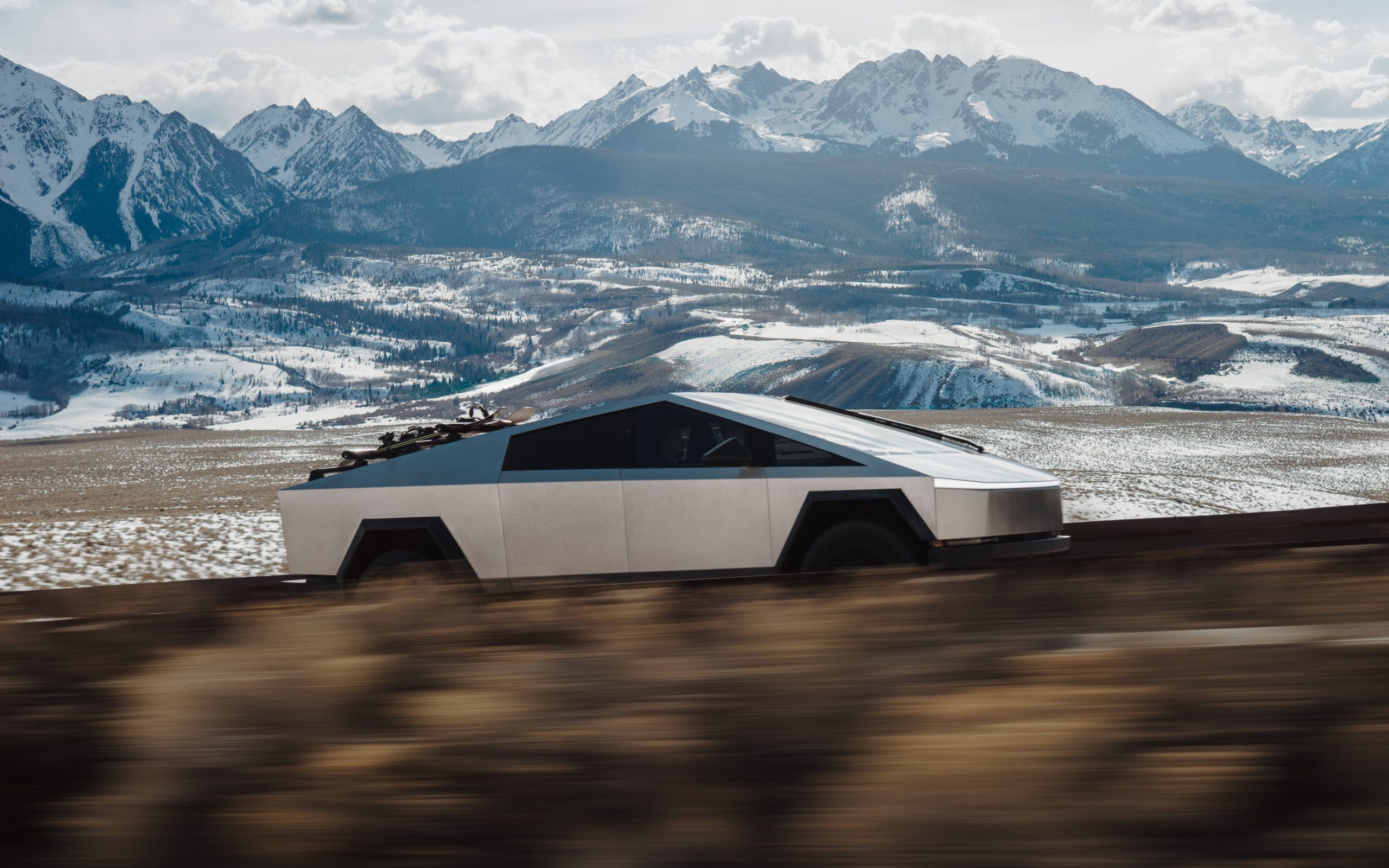
Tesla is set to activate a long-awaited Cybertruck feature, and no matter when you bought your all-electric pickup, it has the hardware capable of achieving what it is designed to do.
Tesla simply has to flip the switch, and it plans to do so in the near future.
Tesla will officially activate the Active Noise Cancellation (ANC) feature on Cybertruck soon, according to Not a Tesla App, as the company has officially added the feature to its list of features by trim on its website.
Tesla rolls out Active Road Noise Reduction for new Model S and Model X
The ANC feature suddenly appeared on the spec sheet for the Premium All-Wheel-Drive and Cyberbeast trims, which are the two configurations that have been delivered since November 2023.
However, those trims have both had the ANC disabled, and although they are found in the Model S and Model X, and are active in those vehicles, Tesla is planning to activate them.
In Tesla’s Service Toolbox, it wrote:
“ANC software is not enabled on Cybertruck even though the hardware is installed.”
Tesla has utilized an ANC system in the Model S and Model X since 2021. The system uses microphones embedded in the front seat headrests to detect low-frequency road noise entering the cabin. It then generates anti-noise through phase-inverted sound waves to cancel out or reduce that noise, creating quieter zones, particularly around the vehicle’s front occupants.
The Model S and Model X utilize six microphones to achieve this noise cancellation, while the Cybertruck has just four.
Tesla Cybertruck Dual Motor AWD estimated delivery slips to early fall 2026
As previously mentioned, this will be activated through a software update, as the hardware is already available within Cybertruck and can simply be activated at Tesla’s leisure.
The delays in activating the system are likely due to Tesla Cybertruck’s unique design, which is unlike anything before. In the Model S and Model X, Tesla did not have to do too much, but the Cybertruck has heavier all-terrain tires and potentially issues from the aluminum castings that make up the vehicle’s chassis, which are probably presenting some challenges.
Unfortunately, this feature will not be available on the new Dual Motor All-Wheel-Drive configuration, which was released last week.
News
Tesla Model S and X customization options begin to thin as their closure nears
Tesla’s Online Design Studio for both vehicles now shows the first color option to be listed as “Sold Out,” as Lunar Silver is officially no longer available for the Model S or Model X. This color is exclusive to these cars and not available on the Model S or Model X.
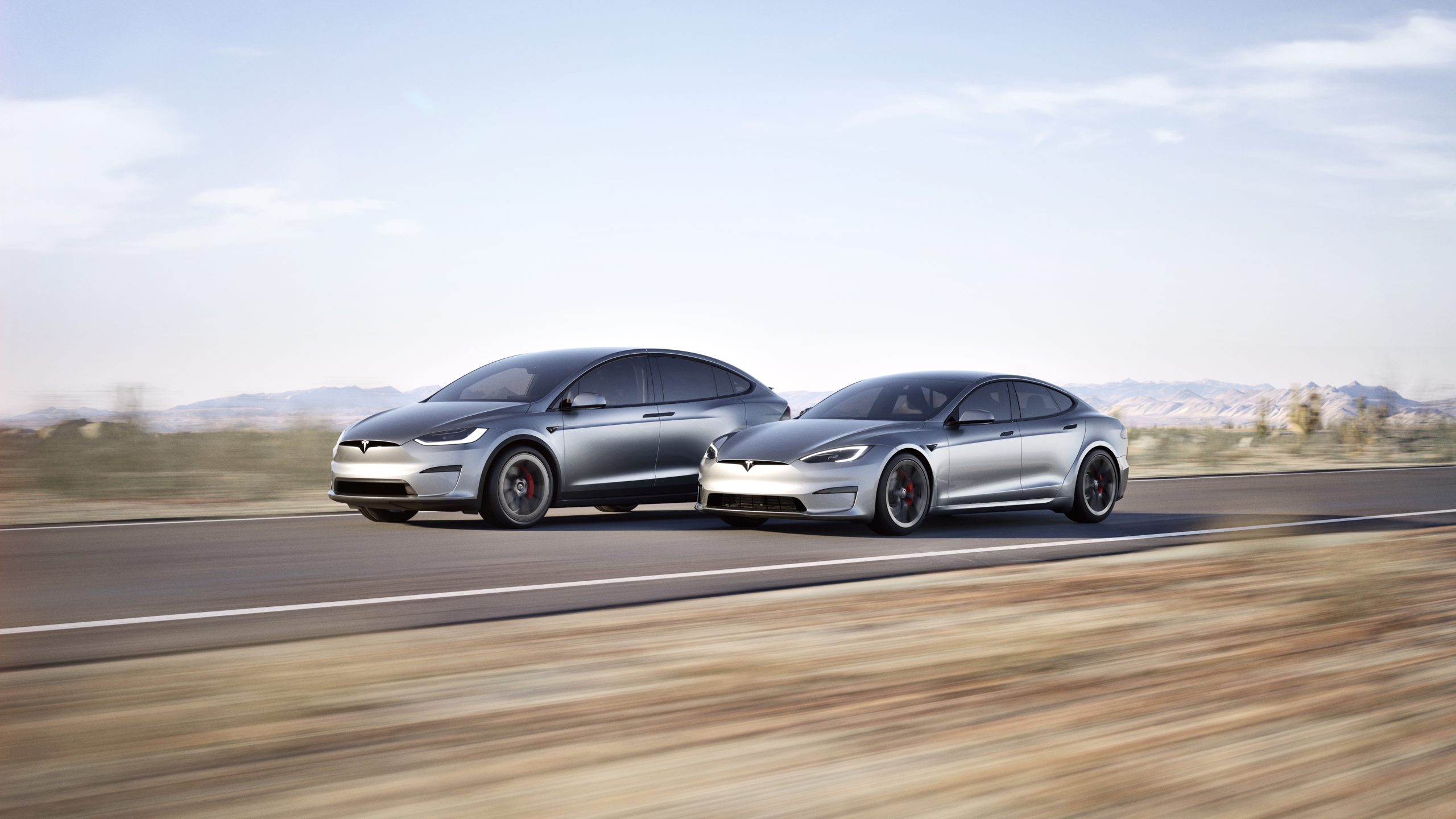
Tesla Model S and Model X customization options are beginning to thin for the first time as the closure of the two “sentimental” vehicles nears.
We are officially seeing the first options disappear as Tesla begins to work toward ending production of the two cars and the options that are available to those vehicles specifically.
Tesla’s Online Design Studio for both vehicles now shows the first color option to be listed as “Sold Out,” as Lunar Silver is officially no longer available for the Model S or Model X. This color is exclusive to these cars and not available on the Model S or Model X.
🚨 Tesla Model S and Model X availability is thinning, as Tesla has officially shown that the Lunar Silver color option on both vehicles is officially sold out
To be fair, Frost Blue is still available so no need to freak out pic.twitter.com/YnwsDbsFOv
— TESLARATI (@Teslarati) February 25, 2026
Tesla is making way for the Optimus humanoid robot project at the Fremont Factory, where the Model S and Model X are produced. The two cars are low-volume models and do not contribute more than a few percent to Tesla’s yearly delivery figures.
With CEO Elon Musk confirming that the Model S and Model X would officially be phased out at the end of the quarter, some of the options are being thinned out.
This is an expected move considering Tesla’s plans for the two vehicles, as it will make for an easier process of transitioning that portion of the Fremont plant to cater to Optimus manufacturing. Additionally, this is likely one of the least popular colors, and Tesla is choosing to only keep around what it is seeing routine demand for.
During the Q4 Earnings Call in January, Musk confirmed the end of the Model S and Model X:
“It is time to bring the Model S and Model X programs to an end with an honorable discharge. It is time to bring the S/X programs to an end. It’s part of our overall shift to an autonomous future.”
Fremont will now build one million Optimus units per year as production is ramped.








